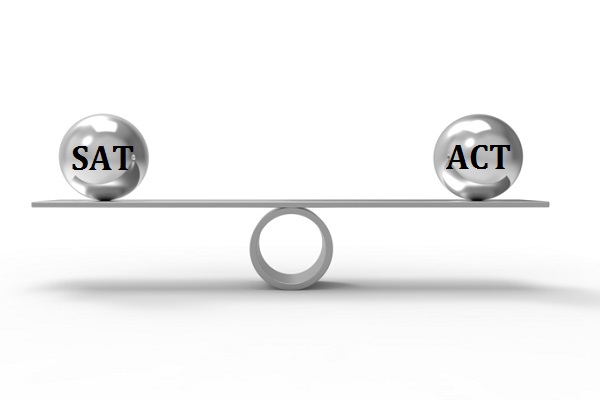SAT vs ACT: Which Test is Easier and How to Choose the Right Test; www.collegeboard.org

When it comes to the ACT and the SAT, both exams are equally recognized and accepted by Universities. Both are the most popular tests taken by UG applicants to study abroad primarily in the United States of America. These tests are used for college admissions and awarding merit-based scholarships. Students must identify the differences and understand their liking or comfort zone to decide which test is right for them. The content and pattern of both tests are the same, with some exceptions to be highlighted in this article.
Universities accept ACT Scores and SAT Scores for admission to different programs in the world. The colleges compare applicants before offering admission to their university using these scores. Therefore, students normally question the preferences of one test over the other and also which test is easier or will increase their admission prospects. Let’s look at the similarities and differences between the ACT and SAT.
| Criteria | SAT | ACT |
| Syllabus |
|
|
| Test Duration | 3 hrs. (without essay)3 hrs., 50 min (with essay) | 2 hrs., 55 min (without essay)3 hrs., 35 min (with essay) |
| Total Questions | 155 | 215 |
| Score | Scored on a scale of 400-1600 | Scored on a scale of 1-36 |
| Calculator use | The calculator be used only on some math questions | The calculator be used on all math questions |
| Mathematics Syllabus | Algebra I and IIGeometry and Trigonometry
Arithmetic/Probability/Data Analysis |
Algebra I and IIGeometry and Trigonometry
Arithmetic/Probability |
| Reading Syllabus | 5 reading Passages | 4 reading passages |
| Science Syllabus | There is none | The Science section on ACT does not test knowledge on any particular science subject. It will test your science-based reasoning and critical thinking abilities. |
| English or Writing/Language Syllabus | Grammar/PunctuationVocabulary
Editing skills |
Rhetorical skillsGrammar/Punctuation
Sentence Structure |
| Essays | The optional essay section of SAT will test your comprehension abilities of a given text. | The optional essay section of ACT will test your analytical and evaluation skills. |
| Frequency of Test | Held 7 times a year in the USHeld 5 times a year internationally | Held 6 times a year |
| Test Dates | March, May, October, and December | February, April, June, July, September, and October |
| Examination Fee | $101 (without essay) international testing fee$117 (with essay) + international testing fee
For Indian applicants, the fee is around Rs.7,400 – Rs.8,700, depending on exchange rates. Check SAT official website for fee updates |
$150 (without essay) + international testing fee$166.50 (with essay) + international testing fee
For Indian applicants, the fee is around Rs.11,100 – Rs.12,300, depending on exchange rates. Check ACT official website for fee updates |
ALSO CHECK
- SAT prep tips: Reading section
- SAT vs ACT
- SAT Suite of Assessments/International Fees
- SAT Suite of Assessments/Contact Us
- SAT Suite of Assessments/ SAT Verification Services
- Take the SAT exam in India to study in US and Canada
- Indian teen gets perfect SAT scores
- SAT Suite of Assessments/ SAT Fee Waivers
- SAT Suite of Assessments/ Ordering Verification Services
- What is SAT Subject Test
- What is a Letter of Recommendation
- SAT Test Centers: City-wise List in India
What to do if colleges require SAT subject tests?
Almost every top-ranked university recommends taking at least two SAT subject tests. If you have decided to take the ACT and are confused with the SAT subject test requirement, be aware that universities accept the ACT + Writing (Essay) in place of SAT and SAT subject tests. If you are interested to apply to universities requiring SAT subject tests you may submit SAT + 2 subject tests or ACT + Writing (Essay). However, always double-check and confirm the admission requirements by visiting the university websites and communicating with them.
Exam Pattern: ACT vs SAT
| Basis | ACT | SAT |
| Total Questions | 215 | 154 |
| Sections | · Reading: 40 questions· English: 75 questions
· Maths: 60 questions · Science: 40 questions |
· Reading: 52 questions· Writing & Language: 44 questions
· Maths: 58 questions |
| Formula Provided | NO | YES |
| Types of Questions | Evidence-based, “real world” problems, Multi-step problem-solving. | Straightforward, long but easy to comprehend. |

